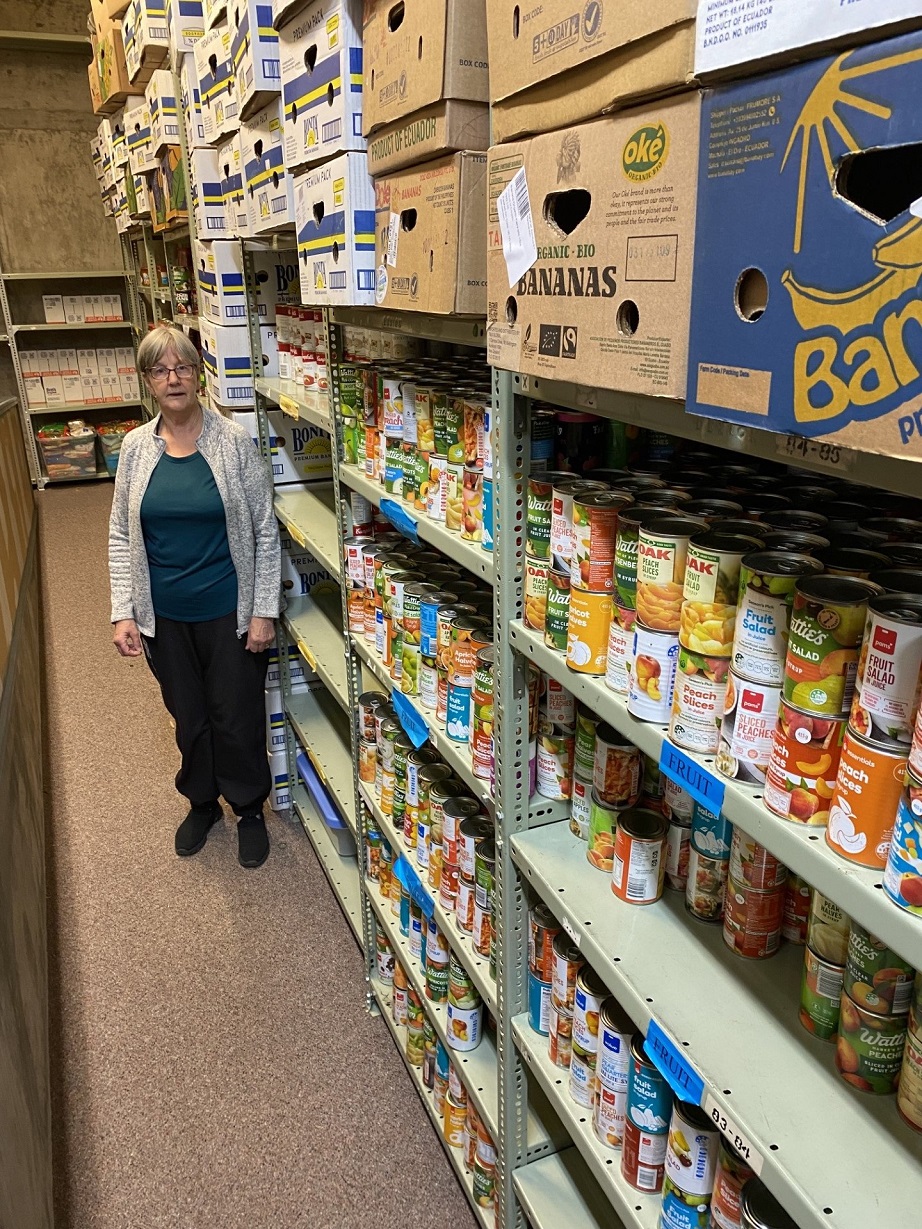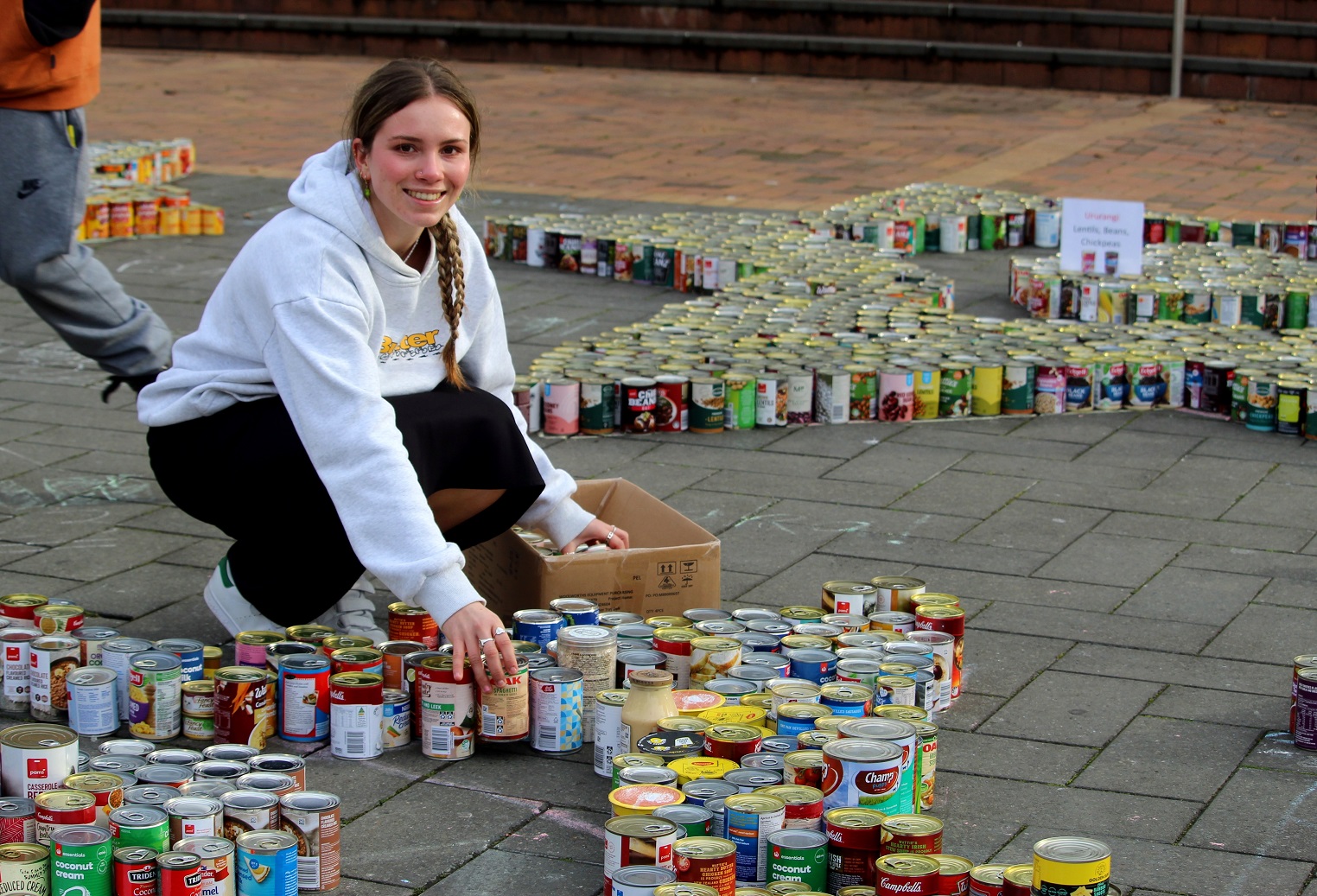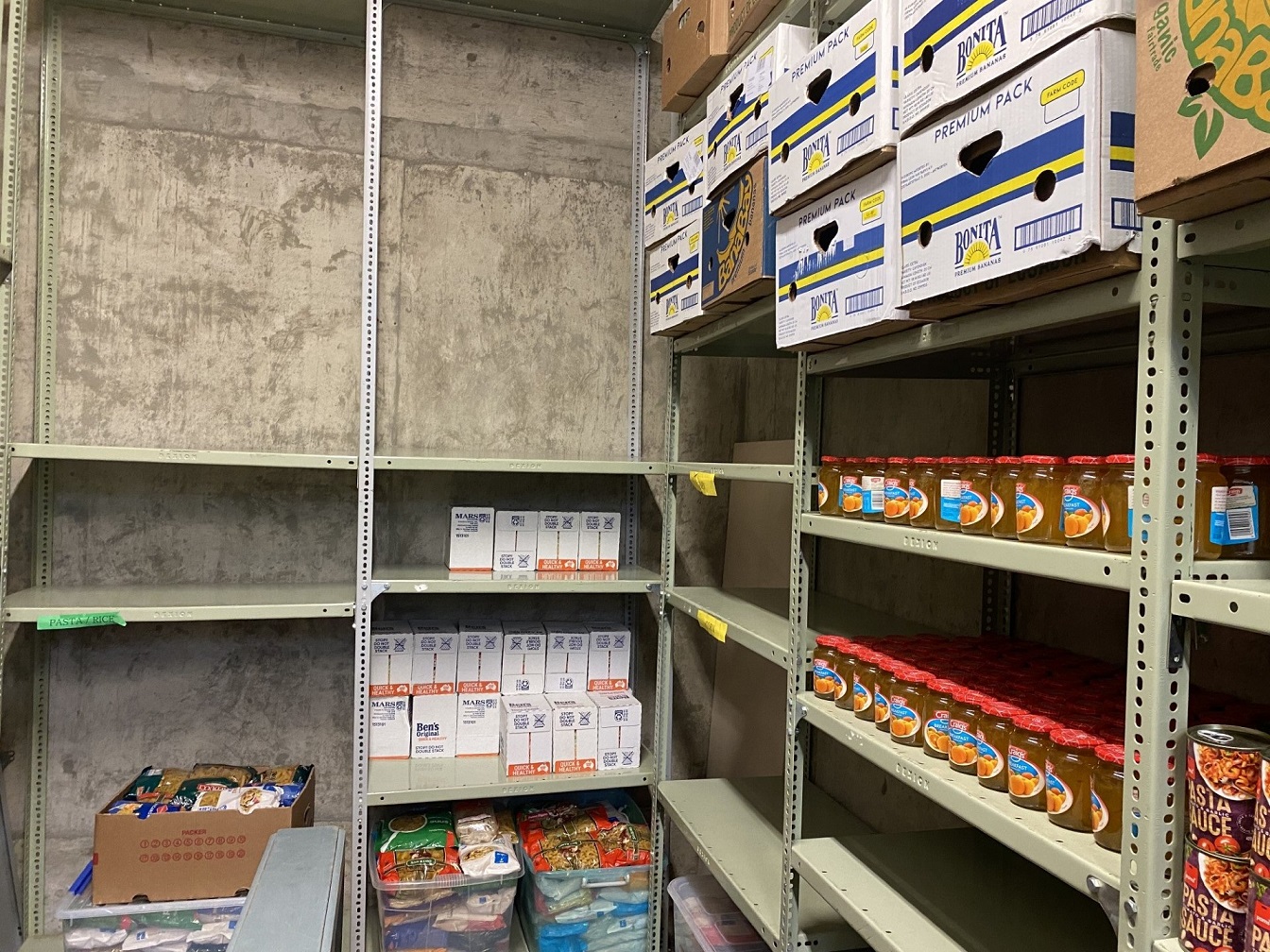Presbyterian Support Otago Family Works foodbank co-ordinator Marilyn Donaldson has heard many heart-breaking stories from distressed people accessing food support.
"People often come to us very stressed, and in tears, about finding themselves unable to afford food," she said.
Ms Donaldson has a simple, compassionate philosophy about the ever-growing demand for help from Dunedin people facing the toughest of tough times.
"It is everybody’s right to have a roof over their head and a meal on the table."
Unfortunately, for many families, couples, and single people, including those in employment, the rising cost of everything — from rent and power to transport and groceries — was leaving no money left over for food.
In the first few months of this year, Presbyterian Support Otago Family Works Foodbank experienced a 29.65% increase in people accessing its foodbank, and had provided an average of 90.3 food parcels each week.

There had also been an 8.7% increase in the number of people accessing PSO’s Financial Mentoring support service, compared to the same period last year.
Presbyterian Support Otago practice manager Deb Gelling said the financial impact of "getting through week-to-week" was significant across the whole community, with many clients new to accessing the foodbank (29.9%) and financial mentoring service (45.9%).
Ms Gelling said people were struggling for many reasons, including the high cost of rent and mortgage interest rates, the cost of food, household bills, petrol and transport.
"Just trying to make ends meet at the basic level is a genuine struggle."
If something changed, such as an injury, illness, car and house repairs, then this "tips the balance", she said.
St Vincent de Paul Ōtepoti Dunedin centre and pastoral co-ordinator Sarah Strang said the foodbank was distributing an average of 60 food parcels each week.
"We have recently changed the way we deliver our foodbank service to allow people the dignity of choosing their own kai," Ms Strang said.
"Interestingly, clients are generally taking less than we would have given them, were we preparing a parcel for them."
About half of the people seen by the St Vincent de Paul foodbank were families and half were single.
"There has been an increase in people we have not seen before recently, with many single people living in cars, vans, tents, or couch surfing," she said.
Mosgiel Community Foodbank co-ordinator Michelle Kerr said demand was steady, with the list of new clients increasing, and evidence that "single folk are struggling".
The causes of food insecurity were the rising cost of living, in particular food, electricity, rent, or the rise in interest rates for those owning their own home.
"We are now seeing two-parent working families coming in because the interest rates are making it so difficult," Mrs Kerr said.
Salvation Army Dunedin spokeswoman Josie Stanford said demand was high and increasing at its central city foodbank, which had supplied 502 food parcels to local people in the first quarter of this year.
There had been a 30% increase in the number of new families entering the service for assistance with food, and a 38% increase in its wraparound service — such as meeting school costs.
"Demand is high and in the last two weeks alone we have had a significant increase in people turning up to reception asking for food," Ms Stanford said.
"These are people who are not current clients of any city food bank, which is showing how the cost-of-living crisis is affecting more and more people ..."
The main reasons for clients’ increased need was rent, the surge in power bills, and fuel costs
"We are seeing many more clients with untreated medical conditions. Dental work has become out of reach for most of our clients. Visual difficulties are now common and being left untreated in most cases," Ms Stanford said.
"We also have clients entering our services for support and through our transitional housing space, who are homeless, living in cars, tenting in the oval or other spaces ..."
While Mosgiel Community Foodbank was in a strong position due to the "wonderful support" of its local community, the larger central city foodbanks reported a drop in donations, due to rising costs impacting on disposable income for everyone.
Ms Strang said the St Vincent de Paul foodbank was buying in basic supplies, including vegetables, meat, toiletries, school lunch items, tea, coffee, biscuits, noodles, cheese, butter, milk powder, cereal and spreads.
"We spent just under $5000 on food last month while still relying heavily on food donations," she said.
"This week, we put out a call on social media for food donations, and the response from our amazing Ōtepoti community has eased a bit of pressure."
Ms Gelling said the PSO Family Works foodbank had experienced "some challenges" with donations, despite being supported over summer by people sharing produce from their home gardens and fruit trees.
"Also, we were extremely thankful for the amazing community response for the Emergency Services Can Drive in early December as this gave our foodbank a real boost at a time when things were very low.
"But, with the increasing demand there are times when we do not have some items such as milk or bread to put into the food parcels as we have already used what we had available."
Ms Stanford said the Salvation Army foodbank was coping with demand, but certainly noticing the extra stress on its food supplies.
"We have some great donors and donations coming in, however they are not keeping up with the increasing demand," she said.
Those running the city’s foodbanks are concerned that even tougher times lie ahead, with growing job losses and winter just around the corner.

- Presbyterian Support Otago Family Works Foodbank:
Donations of non-perishable food can be dropped off at the support centre at 407 Moray Pl, Monday to Friday, 8.30am-5pm (except public holidays).
The annual Octacan collection of food for the foodbank will be held on June 20.
Online donations of funds can be made via the website psotago.org.nz/get-involved/donate-to-filling-our foodbank
- Salvation Army Dunedin Foodbank:
The Salvation Army Red Shield Appeal is running now, with collectors on the street and online donations via helpthesallies.nz
The Foodbank Project is an online platform where people can donate to support food parcels for their local foodbank viafoodbank.org.nz
- St Vincent de Paul Foodbank:
Donations of non-perishable food can be dropped at the central Dunedin shop, 452 George St.
Information on donating funds can be found online at https://www.stvincentdepauldunedin.nz/foodbank/
- Mosgiel Community Foodbank:
Donations of food can be made at the foodbank, at Mosgiel Methodist Church, cnr Gordon Rd and Wickliffe St.
Information on donating funds can be found online at www.mosgielfoodbank.org.nz
WHAT IS THE SOLUTION?
The Star asked Dunedin’s foodbank charities to name the number one thing that could be done to ease the situation for those struggling the hardest to make ends meet.
- Presbyterian Support Otago Presbyterian Support Otago practice manager Deb Gelling felt that more than one thing needed to be done.
"However, providing support through donations to the foodbank is a way that allows us the ability to connect with people accessing our services so we can support them further," she said.
"Although during the Covid-19 period we received government funding for the foodbank, this is no longer occurring.
"One thing we do know is that our foodbank is also a gateway for people to access supports they were unaware of," Ms Gelling said.
- Mosgiel Foodbank co-ordinator Michelle Kerr said cheaper electricity and capping rents to prevent them from climbing "higher and higher" would be a good start.
- St Vincent de Paul Ōtepoti Dunedin centre and pastoral co-ordinator Sarah Strang said it was difficult to think of just one solution.
Providing "better mental health and addiction support, more money on benefits, and accessible housing" would be a help, she said.
- Salvation Army Dunedin foodbank spokeswoman Josie Stanford said the organisation focused on practical help that "gives people a hand up".
"Often the journey starts at the foodbank and then our other services wrap around an individual or family."
This could include transitional houses, the Bridge addiction recovery programme and social workers.
"In order to carry out these vital services, we simply need donations."
All food and donation support was given to clients, and whatever was given locally stayed locally, she said.

DUNEDIN FOODBANK REQUESTS
- Money to buy supplies
- Cereal
- Tinned fish
- Tinned corn
- Macaroni & cheese
- Packages of ready to eat foods
- Coconut milk
- Spreads
- Sauces
- Biscuits
- School lunch items
- Muesli bars
- Sugar
- Flour
- Jams
- Tea & coffee
- Milk powder
- Soap
- Tampons
- Toilet paper
- Shampoo & conditioner
- Cleaning products
- Cat and dog food
- Reusable supermarket bags














